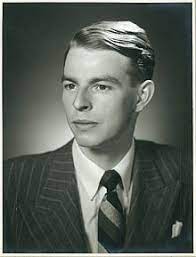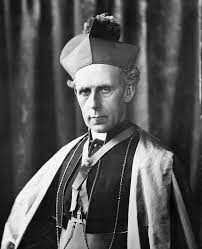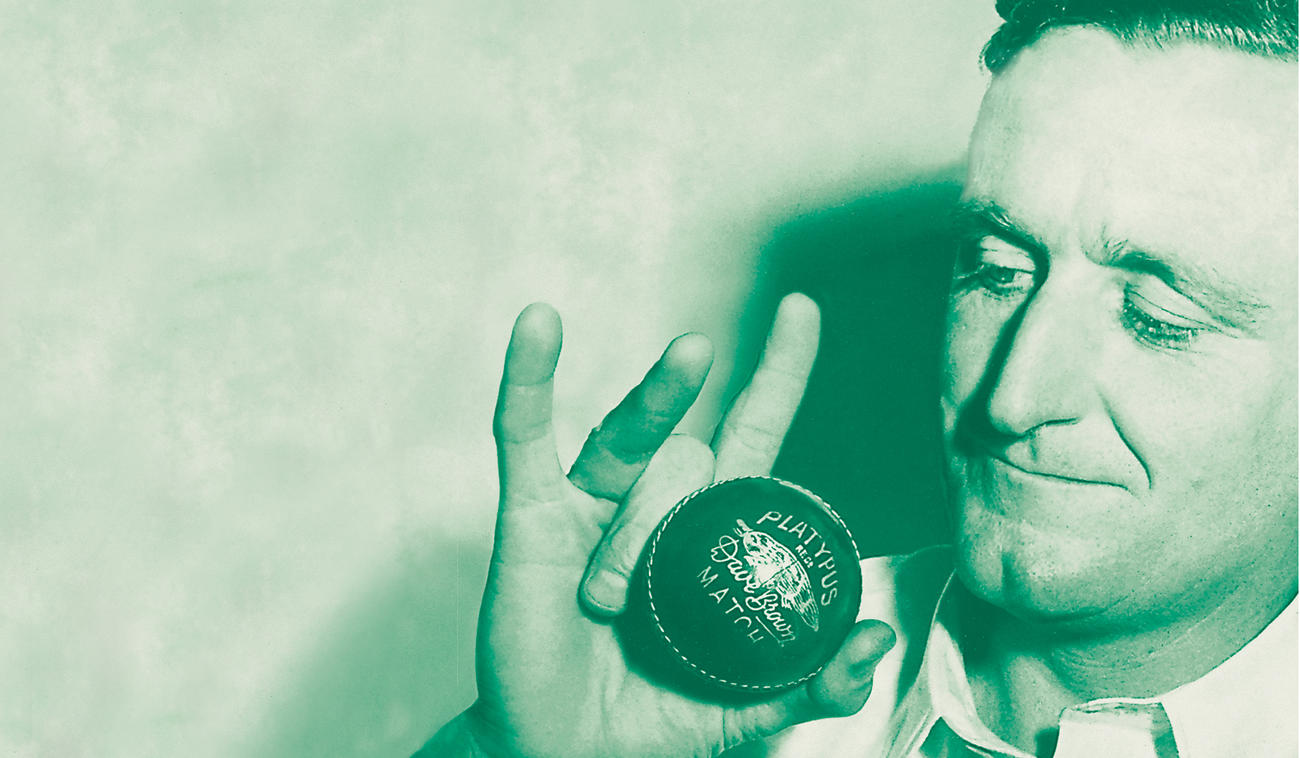
I have received my postal vote For the Vote. There, below the box, the form instructs:
“Write “Yes” or “No””
That is classic ambiguity. It’s so obvious – unless one takes it literally. Once there was a manual for a luxury car, the instructions for which included the following at one of the service stages:
Drain the sump.
It did not go on and instruct the owner to (sic)
Refill the sump.
Yes, there were damaged cars.
The Modern Version of the Old English Word – Dudda
Dutton could not raffle a duck in a country pub in any other State than Queensland – or a leg of mutton for that matter. He has been socialised as a Queensland copper, with all the baggage that entails. He and his wife have made money in harness with him being the Member for Dickson, including receiving Commonwealth money for his childcare holdings. This payment was contrary to the relevant Act.
A former Western Australian Premier labelled him a dullard. There is truth in this, because of the way he seemed to have been manipulated by his Department Secretary, a person who neglected his public administration responsibility while he slurped up to the Liberal Party grandees.

Nevertheless, he summed up the intellectual quality of Dutton, and played the “prejudice polka” every day to keep Dutton in check. This serenading will be an ongoing discussion point when the review of his erstwhile public servant “honcho”, Michael Pezzullo, is finalised and made public. Irrespective of what he does, Dutton will bear some of the brunt of any negative findings on Pezzullo’s antics while the latter was being paid nearly $1m annually.
The point has been made that John Howard opposed all the referendum proposals in 1988, and despite his successful opposition to the referenda, he was out of parliamentary Liberal Party leadership in six months, which started his walk in the wilderness.
This is not to say that Dutton will walk in the steps of Howard, but it reminded me that the default Howard position was always “NO”. It meant that he had to be persuaded to adopt a positive stance; and this stratagem was canny as it enabled him to test the community attitude on any particular proposal.
The fundamental difference between Howard and Dutton at the same stage of their professional life was basic intelligence; plus, Howard was not a Queenslander. If you exclude Frank Forde and Arthur Fadden, whose respective tenures as Prime Minister were as “caretaker”, Kevin Rudd has been the only Queensland-elected Prime Minister. Kevin, whatever he may have been, could not have been cast as the traditional banana-bender. This fussy, self-opinionated, dainty man with a penchant for displaying how intelligent he was, seemed more a character of the inner suburbs of the big metropolises down South rather than coming from the land of surf and coral.
I have spent a great deal of my life in Queensland. These days, there is the tourist who would say the same as I have said, but when you probe deeper, you generally find that they have only gone to the Gold Coast or Noosa on the Sunshine Coast.
Queensland has these exclaves of southerners, but if you happen to be a political aspirant, it is a good idea to spend time in other parts of Queensland. You must break down the natural suspicion at best or antipathy at worst towards the “invaders”. Malcolm Turnbull, the scion of Point Piper, found that out. Mate, in Queensland you need to be able to wear an Akubra without looking like a dill. Moreover, you need to feel comfortable in your own skin. In other words, Queenslanders have a very sensitive bull dust meter. The political parliamentary FIFO sends the needle off the scale.
Gaucho in Cassock
One week, if you eat meat on Friday, you’re going to go to hell. The following week, you can have meat on Friday. The church changed. – Thomas Reese (American Catholic Jesuit priest, author, and journalist.)
As a young man, I was inspired by the activities of Vatican II. I even briefly considered conversion to Roman Catholicism.
But that was then.

Now, Pope Francis is liberalising the Roman Catholic Church, so they say. Oh yeah, pull the other leg. The evidence is that he has appointed 21 cardinals with similar “liberal views”. But there he is photographed recently surrounded by his fellow cardinals in cassocks, the only reminder that this was not a collection of mediaeval relics is the wheelchair the Pope has inaugurated as his particular sedia. In fact, it was not until 1978, that the papacy discovered the wheel with the “popemobile” replacing the sedia gestatoria, an uneasy papal sedan chair borne by twelve strapping men, with a couple of flabellata, large ostrich fans carried by two other muscular deacons on either side of the sedia gestatoria. These fans in their construction could have been a template for the Folies Bergère fans.
If you trace the vestments, as with the papacy, they have their genesis in Ancient Roman robes. Such is the modernity projected by Vatican fashions. Such is the formalin aspic of The Vatican State – the Holy See.
The isolation of the Papacy was reinforced by the loss of most of its temporal land holdings during the Risorgimento, which occurred during one of the longest papal reigns, that of Pius IX. Pius’s troops lost a couple of battles and with that the Papal States. Pius was more than a little miffed and withdrew into The Vatican, describing himself as being the Vatican’s Prisoner. He excommunicated the new Italian King, Emmanuel II along the way, which he subsequently revoked when both were dying.
Nevertheless, Pius IX was a busy Pope. His dogma of Immaculate Conception and also convening Vatican I, the Council where Papal Infallibility embedded in dogma were some of his most notable accomplishments. His efforts in punishing those that procured abortions at any time of gestation prevailed within the Catholic Church; excommunication for abortion became Canon Law in 1917, and later revised in 1983. Boy, has he got a lot to answer for!
For instance, take the matter of celibacy. During the first millennium of the Church, being married was apparently not rare among the priests and bishops, even though St Augustine railed against female blandishments. In the 11th century, Pope Gregory VII issued a decree requiring all priests to be celibate and he expected his bishops to enforce it. Despite the decree, some priests and high-ranking clergy, even popes, flouted the order and engaged in sexual relations with women. Homosexual activity was not regulated; and paedophilia, the bane of the modern church, was ever present. During the Counter-Reformation in the mid-15th century, the Council of Trent tightened the rules demanded that celibacy be subject to excommunication. It did not seem to worry the Borgias and their notorious activities.
The Pope on his own can revoke celibacy of Roman Catholic clergy. What’s stopping him if he is the progressive Pope he pretends he is. Female ordination is a different problem being embedded in Church dogma. It is ironic that the most liturgically conservative Anglican and Episcopal priests, who left the Church for the Roman Catholic Church as a protest against women being ordained, were married. They could remain married and were exempt from celibacy. They were allowed to keep their wives in direct opposition to St Augustine’s doctrine.
Augustine of Hippo was a fourth century North African Bishop whose attitudes have survived, probably because he mirrored a convenient conservatism, which has served the Roman Catholic Church well.
Augustine trod a familiar hagiographic pathway from the Epicurean to the Ascetic. After a time in Milan, Augustine returned to his native town of Tagaste (now Algeria), a cultured man of property, raising the son, Adeodatus. No mention of the mother (unsurprisingly her name is unknown) is recorded. Yet Augustine was a prolific writer. Misogyny has a long history.
Augustine joined the Church when he lost his son; and celibacy was his personal reaction to his loss, to which a whole raft of Church sophistry was added to justify it being compulsory among the clergy, monks – and of course nuns. Forget, ordination, girls. Contemplative hand maidens, brides of Christ are sufficient recognition – but we will add celibacy to give you a feeling of collegiality.
I suppose I reserve my greatest contempt for those who pretend they are reformers, make resounding commentary, but in the end nothing happens. The Vatican II Council made some changes, including making the Mass available in the vernacular, and substituting that the priestly backside by him facing the congregation when saying the Mass. However, those two clerical misanthropes, the Pole and the Bavarian, did all they could to sabotage the Vatican II reforms, and the Church was particularly not well served during the years in which the John Paul II was demented with Parkinsonism.
Vatican II happened when I was a young man. The celebrant at my first wedding was a Bush Brother, who was celibate, and an Anglican priest, my friend who carried the cross in front of the bridal procession became a worker priest, anathema to conservative elements of the Roman Catholic Church. He was an ordained Anglican priest, never moved to Roman Catholicism, initially celibate, he later married. However, he spent much of his life working with immigrants and the poor. Back then, I believed I was optimistic about the future. Secular truths complemented one’s religious beliefs and freedoms would naturally follow.

A significant incident in my life was my introduction to Max Charlesworth. Late in life he too attributed much of the ultimate failure of Vatican II, to the Polish pope who, as Charlesworth wrote, used “modern communications media effectively to make himself bishop of the World”. Ironic because he was the first non-Italian pope since the Dutch Pope, Adrian VI, who had a short one-year papacy (1522-23). John Paul II thus effectively sidelined the doctrine of collegiality, reducing the bishops to ciphers, whose responsibility was to the Pope not to their diocese. Appointments, as Charlesworth opined, were opaque and the appointed bishops would be a gathering of “yes men”. Charlesworth wrote it as he saw it.
In 1960, I was invited to Mass on University Sunday at Newman College. I remember I was placed at the end of a row of pews, and when the Newman College students went to take the Mass, the whispered “heathen” was one of the more complimentary epithets directed at me.
Max Charlesworth, then 35, had recently returned from Louvain University. He was the guest speaker at the lunch which followed the Mass. This was before Vatican II but his theme was very much about liberalising the Church’s attitudes. In Melbourne, it was the time of the Roman Catholic Archbishop Danial Mannix, the crucial supporter then of Bob Santamaria. His Catholic worker anti-communist views had precipitated the split in the Australian Labor Party in the 1950s. At that stage, the model that seemed to guide Santamaria was that of Franco’s Spain, a combination of temporal and spiritual authoritarianism.
 While many of the Roman Catholic bishops were in attendance at the lunch Archbishop Mannix, who then was 96 years old, was not. Daniel Mannix had been a divisive figure in Melbourne. His views were fashioned by his Irish antipathy to anything British, rather than by any Falangist motivation.
While many of the Roman Catholic bishops were in attendance at the lunch Archbishop Mannix, who then was 96 years old, was not. Daniel Mannix had been a divisive figure in Melbourne. His views were fashioned by his Irish antipathy to anything British, rather than by any Falangist motivation.
Listening to Charlesworth’s conciliatory but challenging speech about the need to address the sectarian conflict by his call, I was inspired to live constructively. I was optimistic then. Much of what he said presaged Vatican II, which commenced two years later.
Sixty-three years later, seeing this Pope and his feeble attempts to try to reform, I have little time to complete my construct of a Roman Catholic Church where women were equal and some of the doctrine which seems based on the biases of elderly men shed. Unfortunately, my optimism is now a tattered banner barely able to flutter. But then, what have I really done, especially as I have clung to my Anglicanism rather as a security blanket than as a cloak of reform.
Road Rage in the Scottish Highlands
In 1980, a strange thing happened to us on the way to Glencoe. We happened to be in a rented MGB. There was a line of summer traffic somewhere close to Fort William, on a narrow country road. There were road works ahead. We had come to a halt, when I heard a crack and our car lurched towards the edge of the road. We had been struck by the rear end of a swaying caravan, which was being driven far too fast on the wrong side of the road.

I surprised myself by the speed of my reaction. I pulled the MGB out onto the wrong side of the road and set off in pursuit. Completely crazy, she said later. The vehicle with its caravan was disappearing down this straight stretch of the Scottish tarmac.
I was after it, my hand pressed hard on the horn. I hoped there was nothing coming the other way. It was an uneven match. The MGB was too fast and its horn too insistent. The game was up! The car and caravan had found a gap in the traffic and lurched to a stop. Then a strange thing happened. A man got out of the car with his hands raised – a skinny middle-aged man with drawn emaciated features and a hunted expression from under an old Wehrmacht field cap. The bugger had surrendered as though it was a conditioned reflex. He looked so wretched.
People were climbing out of their cars to come and have a look. Some were clapping. Some were muttering uncomplimentary words about Germans.
Our car had barely a scratch.
“Be careful, Jack. You’ll be a war hero if you don’t watch out.” I was still fuming. I saw a middle-aged lady peering out of the car, wondering what retribution I was going to enact.
I walked over to him. He was shivering. I noticed I was taller than he was. I felt that there was quite an audience at my back.
My voice was loud. “Don’t do it again. Get out of here.” That is all I said. I am not sure he understood. However, as I continued to stand in the middle of the road he scampered back into his car. Only then did I realise how shabby the car and caravan were. I could not understand why I had had such a stupid brain snap.
I walked slowly back to the car as the German couple drove away. She was perched up on the seat. I don’t know what she really thought. I gave her the car keys and asked her whether she wouldn’t mind driving for a bit. That was the signal for all those watching to climb back into their vehicles, and until the road widened, the MGB led this column of cars and assorted caravans. The Germans had long since gone. My companion had been very stately in her driving, then suddenly she accelerated our car and we sped away.
It turned out she was very sensible and not very reproachful apart from saying I was completely crazy in her Laura Ashley voice. “Let’s get some clear air. I think we were lucky, but that poor fellow. He was completely frightened and you blasting the horn really was quite dramatic. But it was an anti-climax; that poor man surrendering as though you were going to take him prisoner. Probably you needn’t have done it, but the people in the line seem to be appreciative. It seems to have made their day.”
I must say that there are various forms of road rage, and I was not immune. I was lucky not to cause an accident. The lesson learnt did not survive, and a year later I had a major accident, the sequelae of which emerged 42 years later. Fortunately, in one way, this time I had no passengers, but the car went up in flames.
On reflection, once an anecdote which I thought funny for years, I am now a bit ashamed about it. Too late to learn.
Come in, Spinner
 The Mouse Whisper reminded me of Jack Iverson, the right arm unorthodox leg spin bowler, who had a brief test career in Australia versus England in the 1950-51 series. He had come from nowhere two seasons before, but he had developed his unique spinning technique with a table tennis ball. Using his middle finger to spin a cricket ball rather than a table tennis ball was something else. His grip involving this powerful middle finger and thumb meant he could bowl off spin, leg breaks and googlies without changing his grip.
The Mouse Whisper reminded me of Jack Iverson, the right arm unorthodox leg spin bowler, who had a brief test career in Australia versus England in the 1950-51 series. He had come from nowhere two seasons before, but he had developed his unique spinning technique with a table tennis ball. Using his middle finger to spin a cricket ball rather than a table tennis ball was something else. His grip involving this powerful middle finger and thumb meant he could bowl off spin, leg breaks and googlies without changing his grip.
After a couple of successful seasons, as described in Wisden, “at the age of 35, he was chosen for his country against the England team captained by F. R. Brown. So perplexing did the visiting batsmen find the bowling of this tall man that in the Test series he obtained 21 wickets for 15.73 runs apiece, including six for 27 in the second innings of the third Test at Sydney. During the fourth Test at Adelaide he suffered an ankle injury when he trod on the ball. He played in only one game in each of the next two seasons and then gave up cricket altogether.”
Iverson was an appalling batsman; he just had no idea. However, coincidently, in the Australian XI at the time, there was a left arm bowler called Bill Johnston, who played in 40 Tests for Australia. He was classed as a rabbit, the sobriquet for the batting inept. He played in these five Tests with Jack Iverson. He batted 10 and Iverson at 11.
Iverson was so bad that he had his own classification – Ferret. After all, don’t ferrets go in after the rabbits?
Mouse Whisper
They could have included this in the ABC series Bay of Fires. The wife was driving through Zeehan the other day, and I nearly fell off the dashboard. There was this young woman walking a ferret on a leash.
Ferrets don’t mind a bit of mouse tartare. Due to their short intestinal tract and high metabolic rate, ferrets must also eat raw meat, a little at a time but often. They can’t digest vegetables, especially those which have high fibre.
Lady, keep that animal on a leash, so I can stretch my paws and have a leisurely scamper while my chauffeuse goes into the hardware shop.

